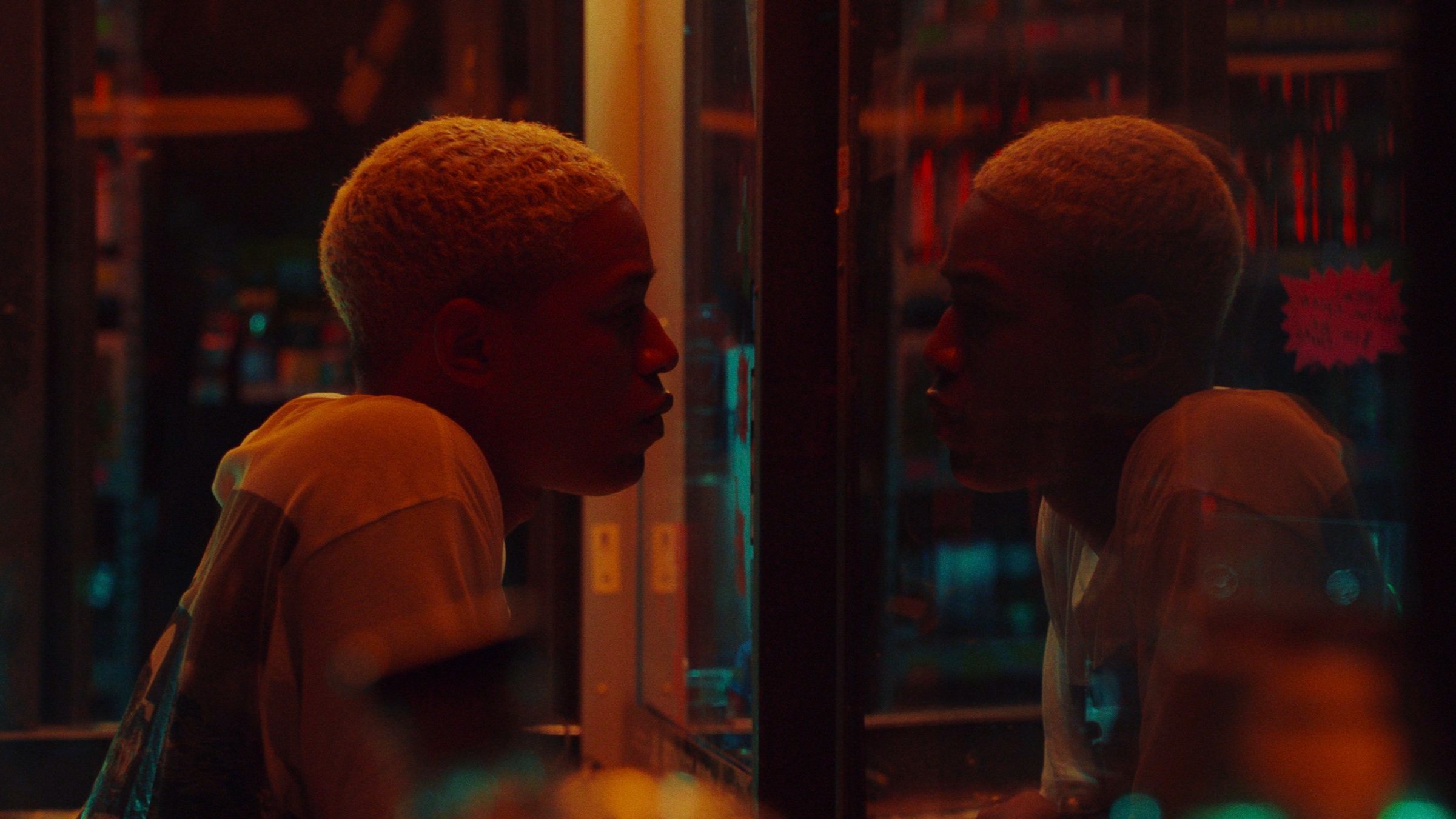Waves
A film made in a unique manner and consequently likely to divide opinion.
The man who wrote and directed Waves, Trey Edward Shults, happens to be white but the central characters in his new film are members of an Afro-American family living in Florida and in consequence Waves has prompted comparisons with the celebrated Oscar-winner Moonlight. That may be understandable, but it is largely inappropriate. Admittedly, the head of the Williams family, Ronald (Sterling K. Brown), does warn his son, Tyler (Kelvin Harrison Jr), that their ethnicity means that in order to succeed they have to assert themselves that much more. Nevertheless, nothing that happens in Waves turns on the fact that this family (which also includes Ronald's daughter Emily (Taylor Russell) and Catherine (Renée Elise Goldsberry) who is his second wife and a sympathetic stepmother to his two children) is Afro-American. No less valid a reason for not comparing this film with Moonlight lies in Waves being unquestionably a one-off.
At the end of Waves we hear a song in praise of sound and colour and it could stand as a credo relevant to the approach that Shults adopts here in his filmmaking. At times Waves seems less a piece of cinematic storytelling than a sensory experience. To this end Shults is determined to make us aware of what he is doing as he targets our eyes and ears. Both Tyler and Emily are in their late teens so the early assault of very loud music may be deemed fitting, but as the film goes on songs frequently feature on the soundtrack, scenes are often linked by images which in their play with colour are virtually abstract, elaborate camera movements crop up on occasion calling attention to themselves and, for no obvious reason, Shults keeps varying the screen ratio so that certain sections play with black strips on each side of the screen or else at the top and bottom. Waves also features a music score by Trent Reznor and Atticus Ross which is so very prominent that it demands to be noticed in its own right.
This domination of the film by the director is taken to extremes and that may thrill some audiences, but I found that it distracted from full involvement in what was an extremely well-acted and potentially affecting story. It is, however, a story that could wrong-foot audiences since, without any kind of warning being given, it is actually a story in two unannounced but distinct parts. The first explores the relationship between Tyler and his girlfriend Alexis (Alexa Demie) and the second in contrast puts the focus on Emily and her white boyfriend, Luke (Lucas Hedges). The first half reaches a dramatic climax and the effect of that on Ronald and Catherine plays a part in the second half. But, even so, in essence we have here Tyler's story followed by Emily's story - that is entirely valid but could be more than a little disconcerting if one is not expecting it. In any case in both halves I found that all the best scenes were those that were played straight without any fancy tricks from Shults. However, for better or worse it is his unusual approach that gives the film its unique character. Consequently, responses to Waves are likely to vary drastically.
MANSEL STIMPSON
Cast: Taylor Russell, Kelvin Harrison Jr, Lucas Hedges, Alexa Demie, Sterling K.Brown, Renée Elise Goldsberry, Bill Wise, David Garelik, Justin R. Chan, Joshua Brockington, Krisha Fairchild, Clifton Collins Jr, Vivi Pineda, Albert Link, Harmony Korine.
Dir Trey Edward Shults, Pro Trey Edward Shults, Kevin Turen and James Wilson, Screenplay Trey Edward Shults, Ph Drew Daniels, Pro Des Elliott Hostetter, Ed Isaac Hagy and Trey Edward Shults, Music Trent Reznor and Atticus Ross, Costumes Rachel Dainer-Best.
A24/Guy Grand Productions/JW Films-Universal Pictures International UK & Eire.
136 mins. USA. 2019. Rel: 17 January 2020. Cert. 15.


